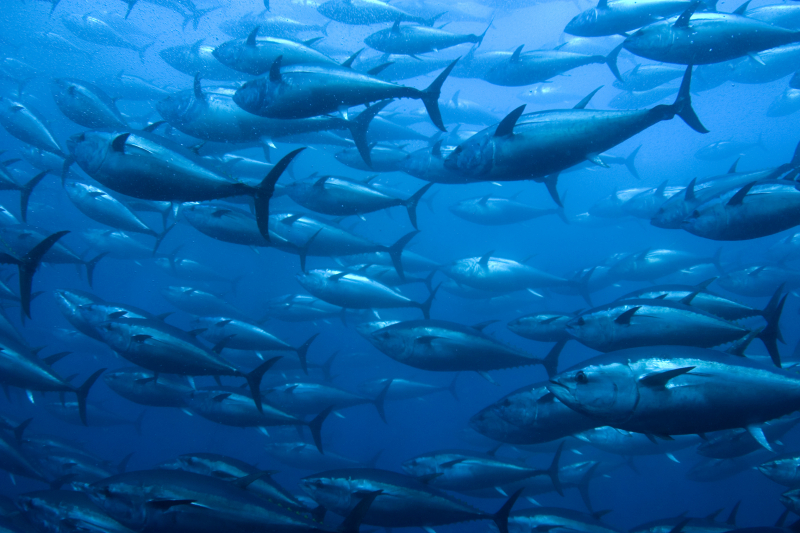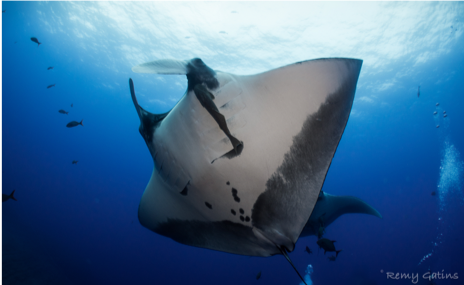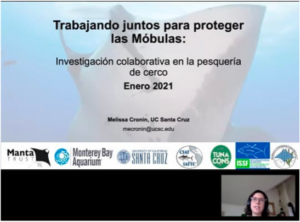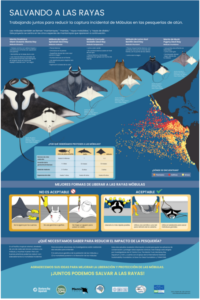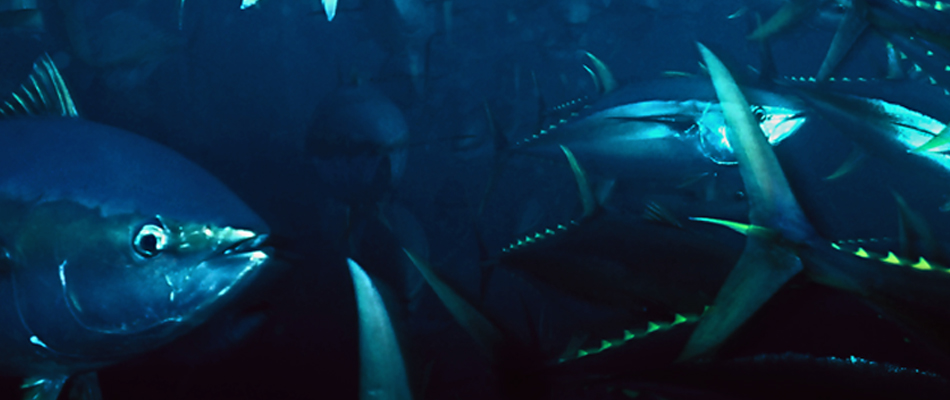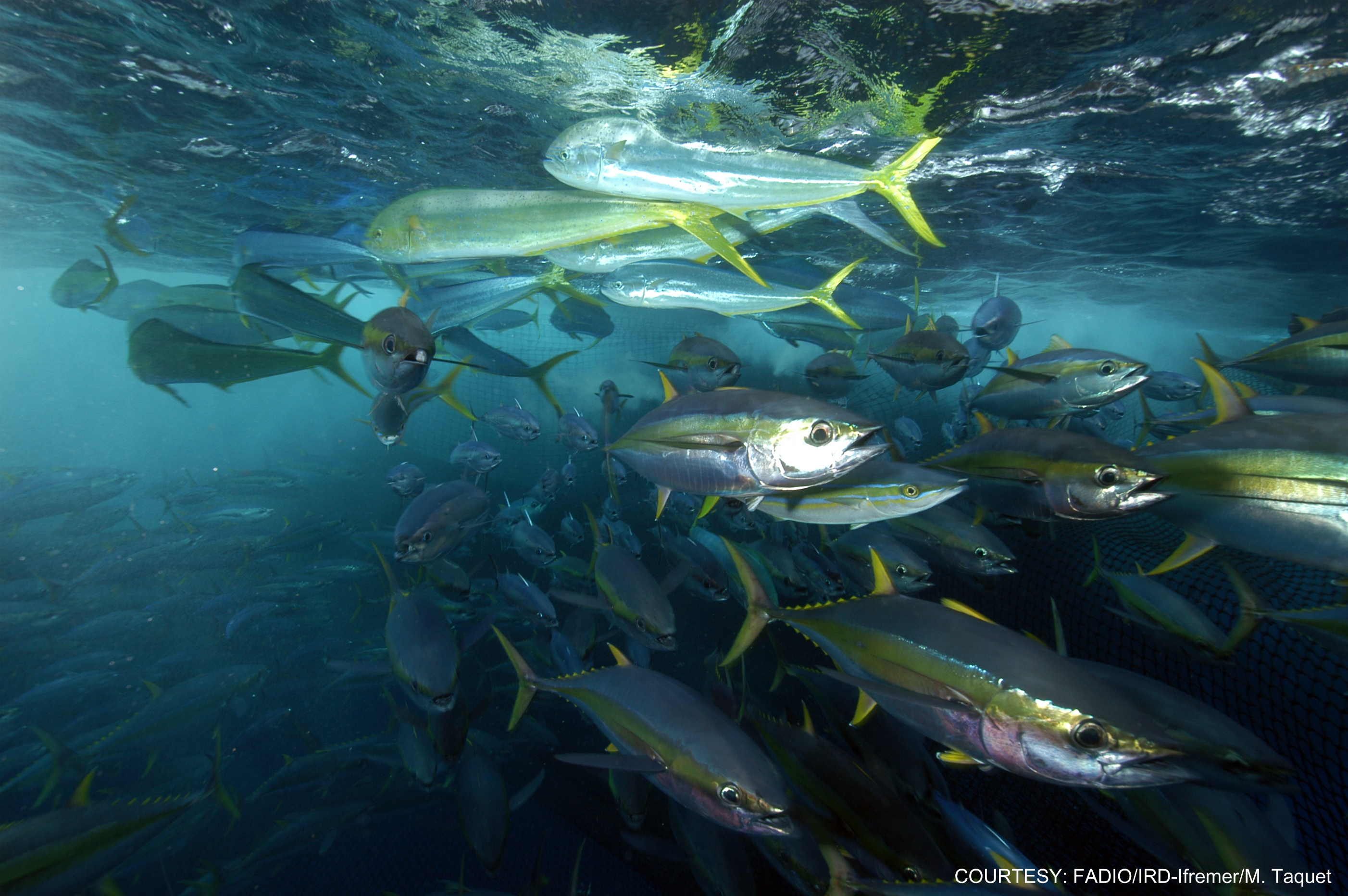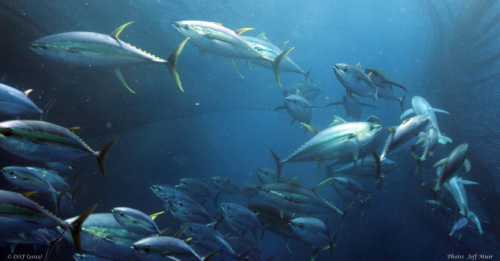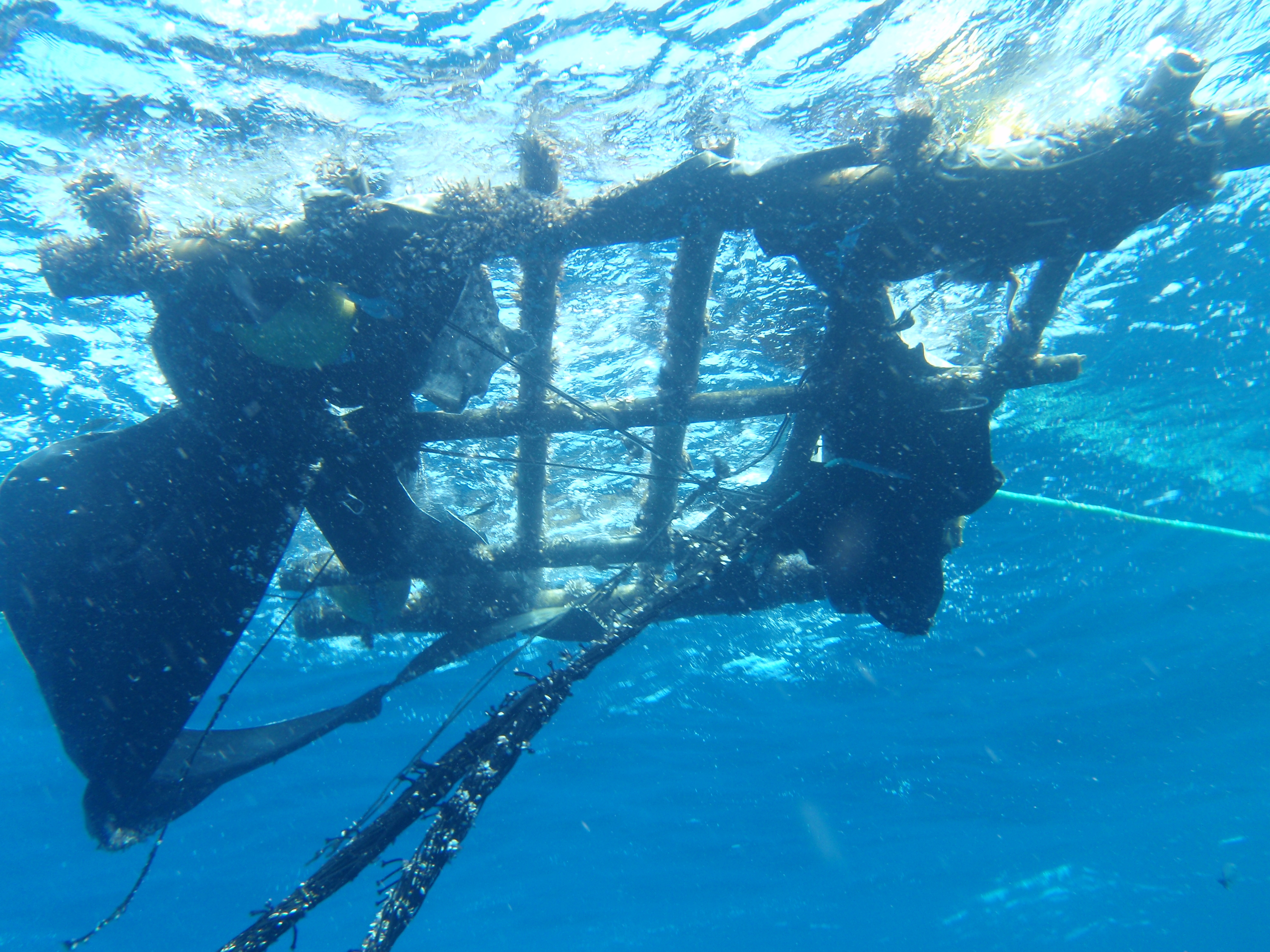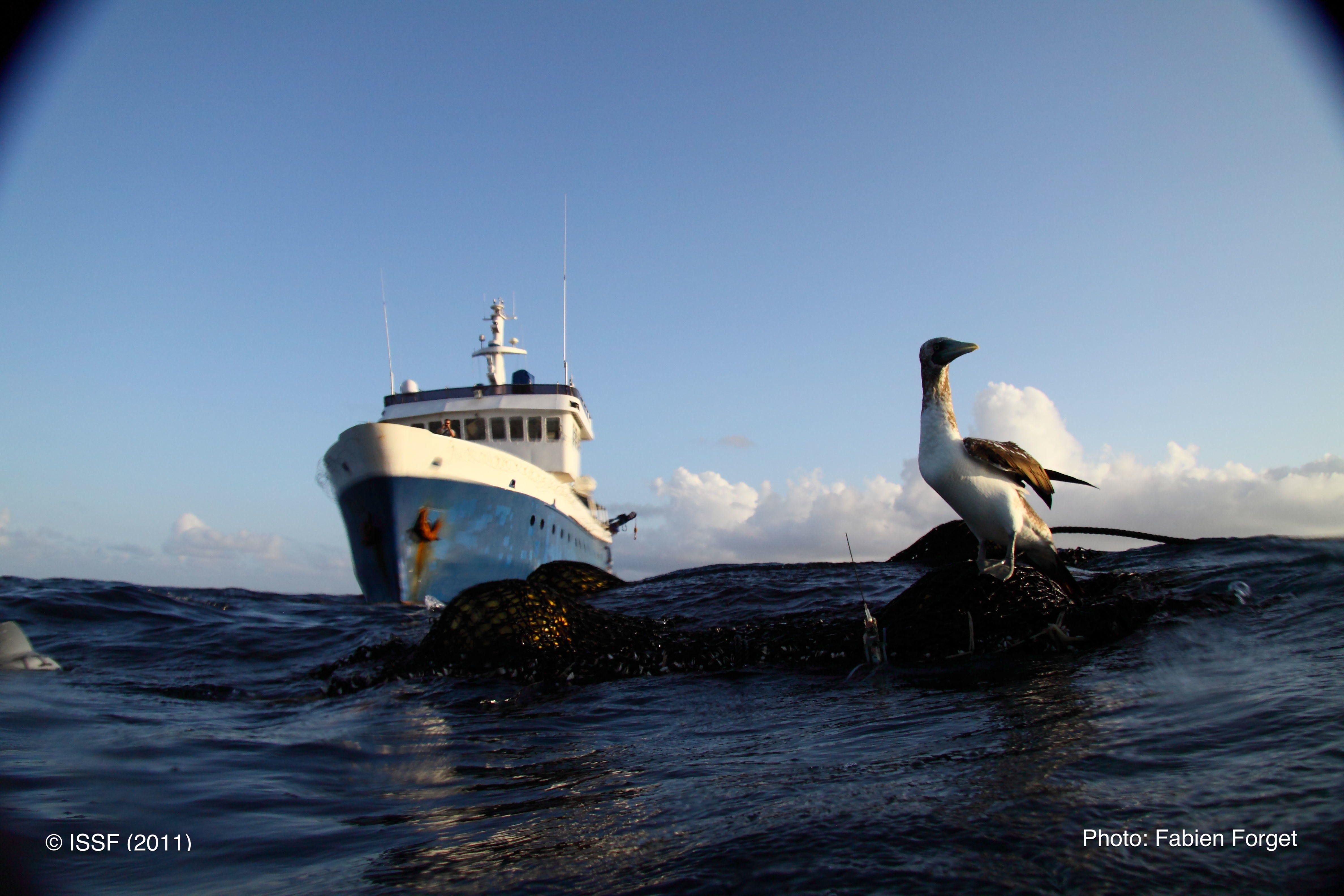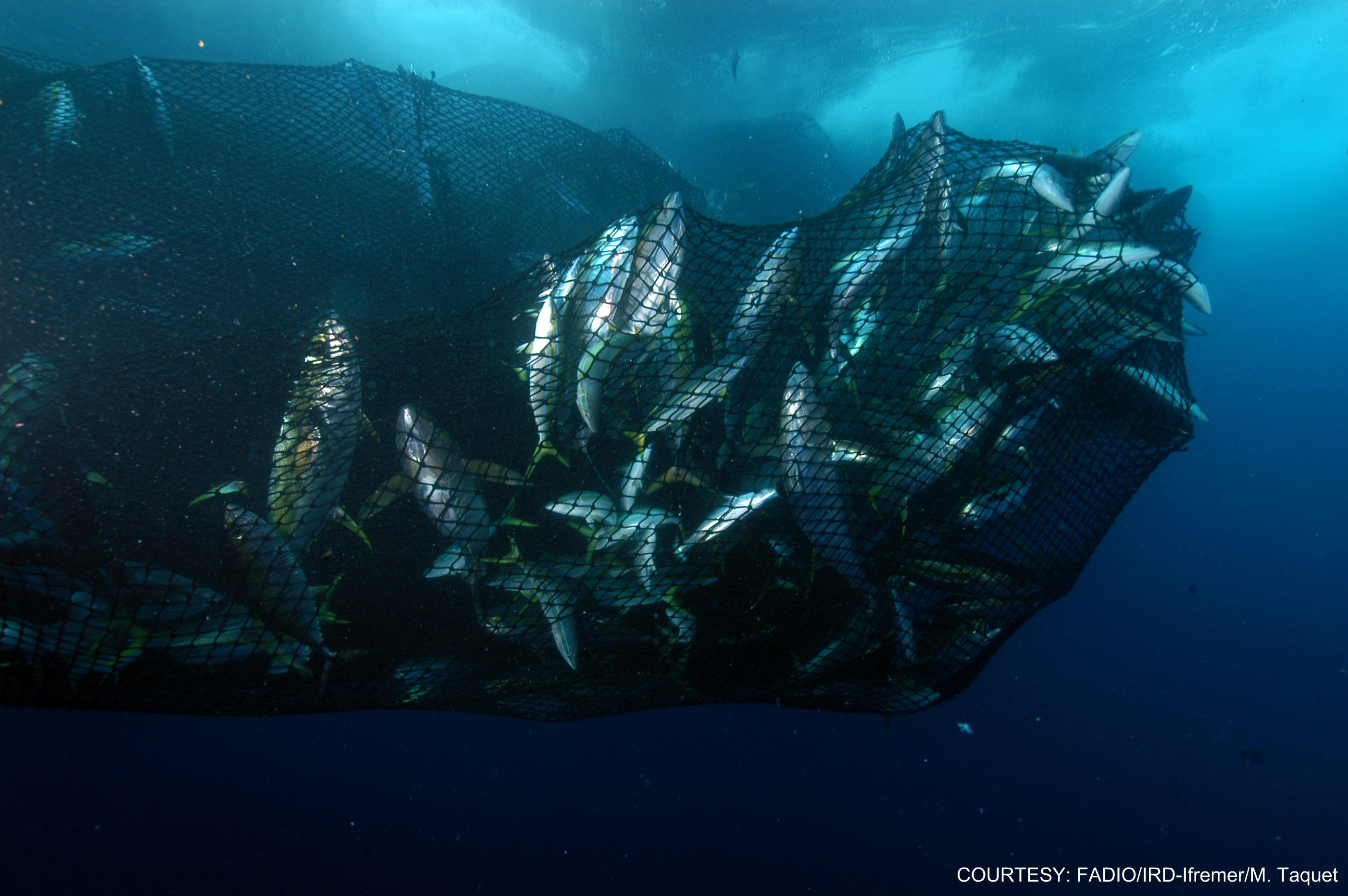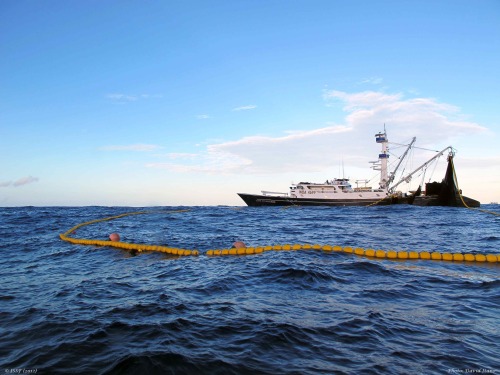ISSF Report: 16 Tuna Stocks Not Meeting Criteria for Marine Stewardship Council (MSC) Sustainability Standard
Independent fisheries scientists in An Evaluation of the Sustainability of Global Tuna Stocks Relative to Marine Stewardship Council Criteria — a February 2021 report commissioned by the International Seafood Sustainability Foundation (ISSF) — found that seven out of 23 major commercial tuna stocks worldwide are successfully avoiding overfishing when measured against the Marine Stewardship Council (MSC) Fisheries Standard and maintaining target stock biomass levels: North Atlantic albacore, South Atlantic albacore, Eastern Atlantic bluefin, Western Pacific skipjack, Eastern Pacific yellowfin, South Pacific albacore and Indian Ocean skipjack. These seven stocks earned a passing score (two of them without conditions) for the MSC Fisheries Standard on its Principle 1: “Sustainable Fish Stocks.” Under Principle 3: “Effective Management,” most tuna regional fisheries management organizations (RFMOs) scored well.
Seven of 23 major commercial #tuna stocks worldwide are successfully avoiding #overfishing when measured against the Marine Stewardship Council (#MSC) Fisheries Standard. Share on XMSC is an independent, international, non-profit organization that oversees a program to assess global wild-capture fisheries and certify them as “sustainable” if they meet its Fisheries Standard criteria. In the March 2020 edition of the report, four stocks passed Principle 1, indicating a slight improvement explained by the new stock assessments conducted in 2020, as well as the good scores of one of the bluefin stocks newly incorporated in this version. Principle 3 evaluations remained unchanged for the most part.
The report attributes 16 other tuna stocks’ inability to pass MSC Principle 1 to poor stock status, the lack of well-defined harvest control rules (HCRs), and/or the lack of effective tools to control harvest. A stock will pass if its overall score is 80 or above, and no single score is less than 60.
Notable Report Findings
An Evaluation of the Sustainability of Global Tuna Stocks Relative to Marine Stewardship Council Criteria was independently authored by Paul A. H. Medley, Jo Gascoigne, and Giuseppe Scarcella. This is the first time the report evaluates the four bluefin stocks (Western Atlantic bluefin, Eastern Atlantic and Mediterranean bluefin, Pacific bluefin and Southern bluefin) under Principle 1 and the Commission for the Conservation of Southern Bluefin Tuna (CCSBT) under Principle 3. One of the four bluefin stocks (Eastern Atlantic) received a P1 overall passing score.
Most changes in the evaluation of other tuna stocks are due to new tuna stock assessments conducted by RFMOs in 2020 and how those stock assessments affect HCRs (e.g., providing evidence that management controls are effective in limiting fishing mortality).
About the Report
An Evaluation of the Sustainability of Global Tuna Stocks Relative to Marine Stewardship Council Criteria takes a consistent, comprehensive approach to scoring tuna stocks based on certain components of the MSC standard. The report — updated regularly since it was first published in 2013, and organized by individual tuna stock and tuna RFMO — is designed to:
- Provide a basis for comparing between stock scores and tuna RFMO scores as assessed by the same experts
- Become a useful source document for future tuna certifications or in the establishment of tuna Fishery Improvement Projects (FIPs)
- Prioritize ISSF projects and advocacy efforts against initiatives that will improve low performance indicator scores
The scores in the report focus on stock status (MSC Principle 1) and the international management aspects relevant to RFMOs (part of MSC Principle 3) and are based on publicly available fishery and RFMO data. Each of these Principles is evaluated in relationship to Performance Indicators (PIs) within each Principle. The Evaluation report also includes detailed remarks on each stock, evaluations of the five RFMOs, and comprehensive reference citations.
MSC Principle 1
The MSC Principle 1 states: “A fishery must be conducted in a manner that does not lead to overfishing or depletion of the exploited populations and, for those populations that are depleted, the fishery must be conducted in a manner that demonstrably leads to their recovery.”
Of the 23 tropical and temperate tuna stocks, 7 achieved a passing score for Principle 1, meaning its overall score is 80 or above, and no single score is less than 60. Failure was due to poor status of the stock, the lack of well-defined harvest control rules in place and/or the lack of effective tools to control harvest. Three of the 23 stocks have fully implemented well-defined harvest control rules, and there has been progress towards this aim by all RFMOs. However, with the exception of CCSBT, not all RFMOs have made progress toward this aim for all tuna stocks under their management. Slow progress — exacerbated in some cases by the Covid-19 pandemic — and failure to implement controls before rebuilding is required leads to a stock’s failing to meet minimum requirements on harvest control rules.
Regarding stocks receiving passing scores:
- Among nine tuna stocks in the Atlantic Ocean, three received an overall principle-level passing score: Northern albacore, Southern albacore and Eastern bluefin (the only bluefin stock to receive a passing score).
- Among nine tuna stocks in the Pacific Ocean, three received overall principle-level passing scores: Western skipjack, Southern albacore and Eastern yellowfin.
- Among five stocks in the Indian Ocean, one received an overall principle-level passing score: skipjack.
Regarding stocks receiving failing scores:
- In the Atlantic, yellowfin, bigeye, Western skipjack, Eastern skipjack, Western bluefin and Mediterranean albacore all received principle-level failing scores.
- In the Pacific, six stocks received overall principle-level failing scores: Western yellowfin, Western bigeye, Eastern bigeye, Eastern skipjack, Northern albacore and Pacific bluefin.
- In the Indian Ocean, yellowfin, bigeye and albacore all received overall principle-level failing scores.
- Southern bluefin tuna also received an overall P1 failing score.
MSC Principle 3
The MSC Principle 3 states: “The fishery is subject to an effective management system that respects local, national and international laws and standards and incorporates institutional and operational frameworks that require use of the resource to be responsible and sustainable.”
One tuna RFMO — the Inter-American Tropical Tuna Commission (IATTC) — received unconditional passing scores for all seven performance indicators under Principle 3. This is the first year that the CCSBT was included in the analysis, and that RFMO did not receive an unconditional passing score. The other four tuna RFMOs received overall principle-level passing scores from the authors.
While the report focuses on tuna stock status and sustainability as well as on RFMO policies, it does not address national or bilateral management systems, gear- or fleet-specific ecosystem impacts, or specific fisheries’ ecosystems — all of which are also considered within the MSC assessment methodology.
Since 2011, ISSF has been an active stakeholder in MSC tuna fishery assessments and certifications. ISSF’s strategic objective is to develop and implement verifiable, science-based practices, commitments and international management measures to help all tuna fisheries become capable of meeting the MSC certification standard without conditions.
